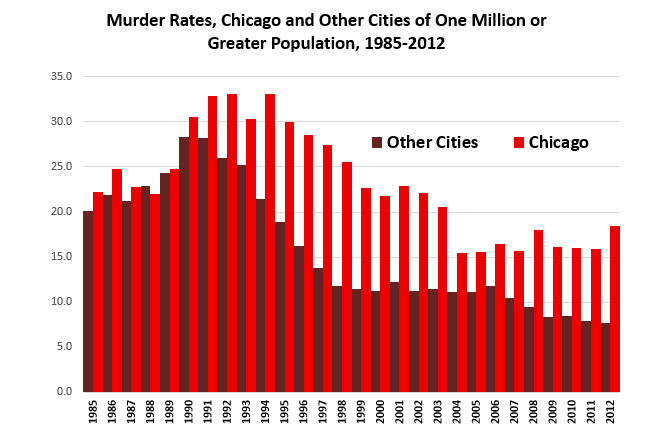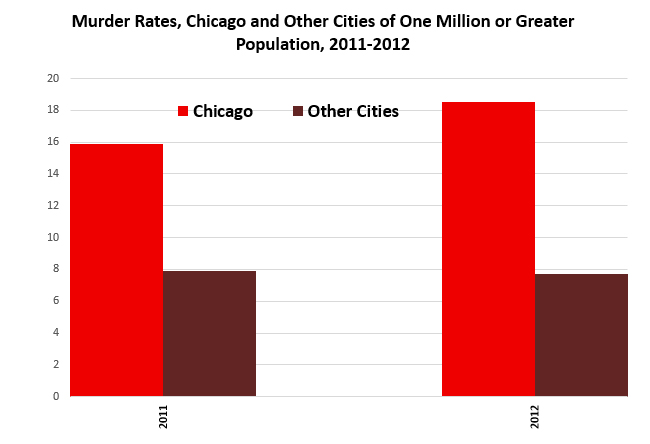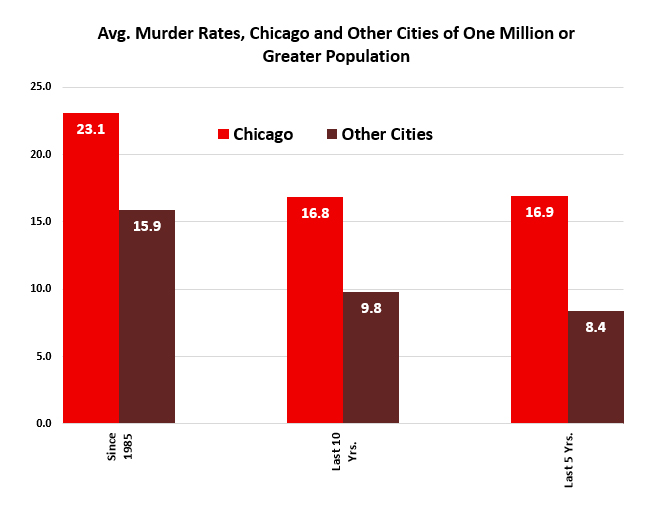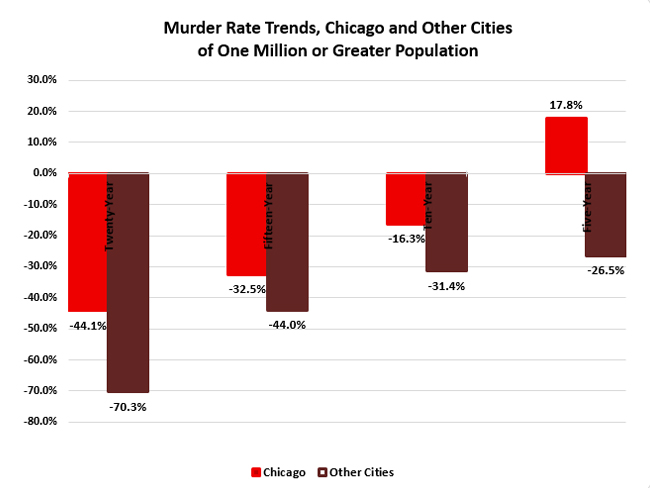Emanuel Puts Positive Spin on Chicago’s Violent Crime Problem
Even though Chicago has more murders than any city, its mayor, Rahm Emanuel, says it’s not the “murder capital,” Politico reports.
Emanuel appears to base his conclusion on a study ranking Chicago 21st in terms of its per capita murder rate. However, this ranking compares Chicago (population 2.7 million) to towns with populations as low as 100,000. While apples-to-apples in terms of using rates instead of numbers of crimes, it isn’t apples-to-apples to compare a big city with small towns.
Emanuel further noted that violent crime is down for the first seven months of 2014. However, Chicago’s situation doesn’t appear so favorably when its murder rates are compared to those of other cities and the country, year-in and year-out, over time, from 1985 through 2012. Since the early 1990s, Chicago’s murder rate has been significantly higher than the aggregate rate of other cities of comparable size.
Emanuel notes that murders in Chicago have declined thus far in 2014, as compared to 2010 and 2013. However, Emanuel was elected in May 2011, and from 2011 to 2012, Chicago’s murder rate increased 16 percent. Meanwhile, the aggregate murder rate of other cities of one million or greater population decreased three percent. Additionally, Chicago’s murder rates have remained consistently higher than the aggregate rate of other large cities over time.
Additionally, Chicago’s murder rates have remained consistently higher than the aggregate rate of other large cities over time. Chicago’s murder rate trends have also been worse than those of the other cities over time.
Chicago’s murder rate trends have also been worse than those of the other cities over time.
Chicago’s crime problem may take a turn for the better, however. Recent court decisions have eliminated some of the most egregious violations of, and obstacles to, city residents’ exercise of their right to keep and bear arms.
In 2010, the Supreme Court struck down the city’s 32-year-old handgun ban in McDonald v. Chicago. In 2011, the U.S. Court of Appeals for the Seventh Circuit struck down Chicago’s ban on shooting ranges in Ezell v. Chicago, saying “The right to possess firearms for protection implies a corresponding right to acquire and maintain proficiency in their use.” In 2012, the same court declared Illinois’ total ban on carrying firearms for protection unconstitutional, resulting in the state adopting a “shall issue” carry permit law the following year. And this year, the U.S. District Court for the Northern District of Illinois struck down Chicago’s ban on firearm transfers.
In his bid for reelection, Emanuel is trailing a potential opponent, in part due to Chicago’s persistent crime problem. We look forward to a day when the mayor of Chicago, whoever that may be, can happily report that crime in the city has been cut by the same margins that have been seen in states and cities whose laws have a longer history of respect for the right to arms.













 More Like This From Around The NRA
More Like This From Around The NRA








